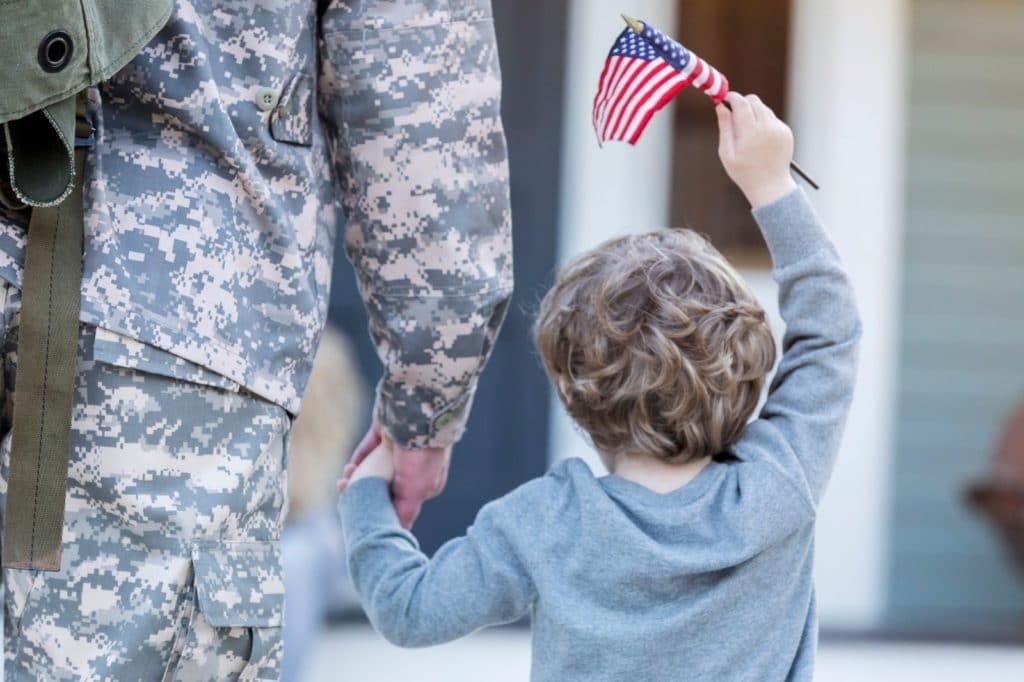Between deployments, TDYs, training in the field, and preparing for missions at training centers, frequent separations are a common reality for military families. This can mean a lot of change and disruption that is stressful for everyone, especially your children. Yet even through transition and separation, there are things you can do to before the separation and during to reduce stress and promote well-being for everyone in your family.
Be Present and Consistent
Ultimately, your children need to know that you love them and will always support them. They also need to know that they will be safe and cared for. Communicate those messages with your words and actions. Spend time with them, actively listen, and provide comfort in the ways that are special for your child. Provide a sense of safety through consistency and predictability, and try to keep the same rules and similar daily routines.
Don’t Avoid the Subject
Even with good planning and support, it’s natural for you and your children to feel sad, worried, or angry at times about being separated. No one likes to see their child upset; so it can be tempting to avoid talking to your child about a deployment so they don’t “dwell” on negative emotions. However, it’s important to let your children know the feelings they have are normal and OK to talk about. Let them know that letting out their natural emotions is a sign of strength and resiliency. And, talking about difficult things with someone supportive can help regulate strong emotions.
Find Ways to Keep Your Service Member Present From Afar
Although a deployed parent is physically far away, there are lots of creative ways for military families to keep their loved one present emotionally. One way is through covert coparenting. Practice ways that you and your spouse or coparent can work together as a team while one parent is away. Covert coparenting is a great way to communicate to your child that while their deployed parent isn’t right in front of them, they are still their parent, still involved in their life, and still love them. Examples of coparenting include:
- Telling your child that their deployed parent is so proud of them for cleaning their room.
- Giving your child a kiss from Mom/Dad each night.
- Telling your child that you are video recording their soccer game so that Mom/Dad can watch too.
You can also help keep your service member present for your child by reading them developmentally appropriate books about deployments, separations, or military service. One good resource is www.militaryfamilybooks.com.
Service members can participate too! If deployed parents are able to talk to their child on the phone or video chat, they can remind their child that they love them, miss them, and are so excited to see them again. This communication can go a long way!
When communication is more difficult, many service members record their voices and send recordings of special messages or of themselves reading books.
Children can also participate in keeping their deployed parent present. Encourage your child to take pictures of everyday habits or fun activities to send to Mom or Dad . Help your child assemble care packages, including special messages or artwork. When children are reminded they can connect with their parent, it helps buffer feelings of sadness, anxiety or anger.
Don’t Put Positive Experiences on Hold
When someone we love is far away, it’s tempting to want to hold off on celebrations and fun activities. Of course, we want to share these things with the people we love! But postponing activities means the rest of the family at home is “living less life,” which can lead to moodiness and irritability. So plan that trip to the waterpark, put up the Christmas tree, and continue to engage in meaningful and joyful family activities.
Celebrating special occasions is the perfect time to use covert coparenting and help your service member stay present from afar by taking pictures and videos. Some families even bring pictures of their deployed parent, or even “Mommy/Daddy Dolls,” to be sure that the parent is kept in mind.
Create Meaning With Separation-Related Rituals
Rituals and traditions are meant to provide meaning and comfort, which makes them very important for children. Military families have unique lives, and their family rituals and traditions may reflect that. I have found that the most resilient families during deployments create meaningful traditions related to the separation. I once had a military spouse tell me that if her husband is deployed for Christmas, she always leaves the Christmas decorations up until he returns so that he can experience the holiday with his family too. This has become a special tradition in their family.
Another service member shared that he always creates a series of special notes for each family member, one for every month he will be gone, and hides them around the house. For each new month, the family members get to search for one of their notes. This brings them joy and excitement each month.
While the separation is never easy, these rituals and traditions are things that children can find comfort in and look forward to.










